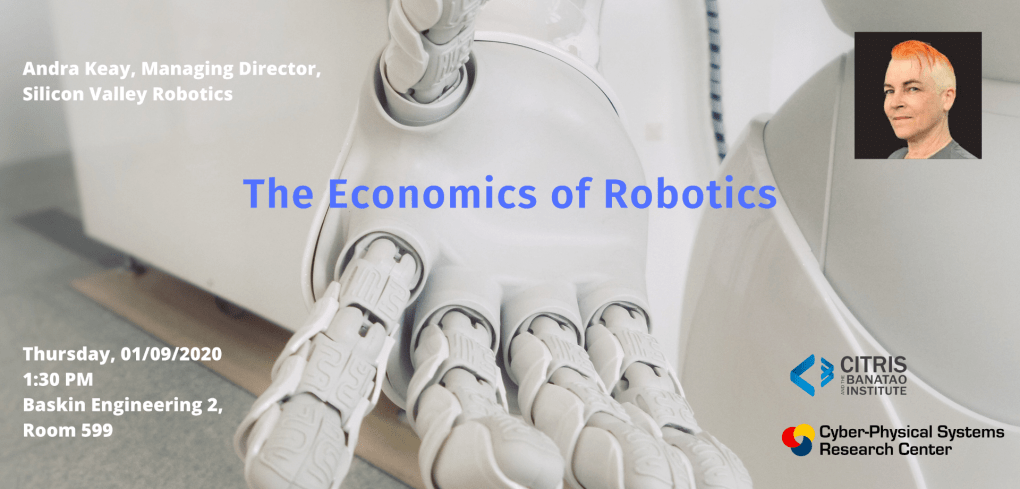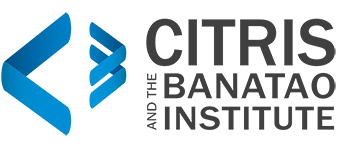
Speaker Name: Andra Keay
Speaker Title: Managing Director
Speaker Organization: Silicon Valley Robotics
Start Time: Thursday, Jan. 9th, 2020 – 1:30pm
End Time: Thursday, Jan. 9th, 2020 – 3:00pm
Location: E2-599
Abstract:
This seminar is a review of the latest investments into the robotics industry, and how difficulties in the categorization of the robotics industry in the U.S. and overseas hinders awareness of emerging robotics technologies. In 2014, the robotics industry hit two tipping points. One was a huge increase in funding going into new areas of emerging robotics industries, and the other has been the move away from traditional market analytics based on sales figures to predict future growth, towards the much more complex analysis of disruption, market cycles, and effectively trying to read the entrails of the investment industry.
Bio:
Andra Keay is the Managing Director of Silicon Valley Robotics, the non-profit industry group supporting innovation and commercialization of robotics technologies. Andra is also founder of the Robot Launch Global Startup Competition, Robot Garden Maker Space, and Women in Robotics. She is a mentor, investor and advisor to startups, accelerators and think tanks, with a strong interest in commercializing socially positive robotics and AI. She joined CITRIS People and Robots Research Group as a Visiting Scholar.

 Due to demand we have added three more Tech for Social Good Program student info and matchmaking sessions at the following campus locations and dates:
Due to demand we have added three more Tech for Social Good Program student info and matchmaking sessions at the following campus locations and dates: